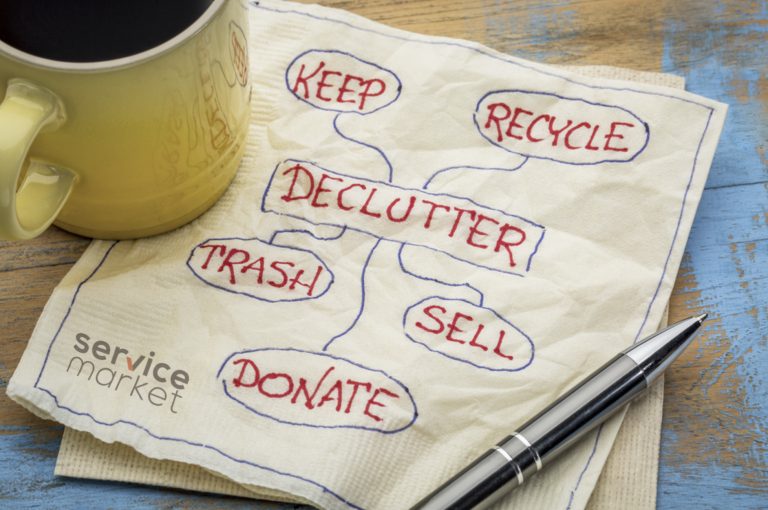Whether you’re a Marie Kondo convert or not, we all need help at one point to sort out our clutter problem.
And in a country where things – from the latest gadgets to clothing to home stuff and more – are readily available, it’s easy to get bitten by the shopping bug and accumulate things fast. And don’t get us started on the number of sale promotions all year ‘round.
The good news is that de-cluttering, while truly challenging, can be done with proper time management, dedication and willpower.
We seek the help of our friends from ServiceMarket, the UAE-based online marketplace for cleaning and storage service, to steer us to the right path towards organizing our stuff.
- Set aside a day or weekend when you are free, and try not to postpone your de-cluttering session once you’ve made up your mind. If you can’t spare a whole day, then spend 15 minutes on de-cluttering every day until everything is done.
- Have five boxes ready: one for items to sell, one for charity, one for everything you plan to keep in a storage unit, one for items you are ‘not sure’ about, and one for rubbish.
- Follow the ‘only touch each item once’ rule. So many of us move things around and end up sorting them over and over. To avoid this, make sure that things go straight to the correct place or the correct box.
- If you are not sure whether you need to keep an item then put it in the ‘not sure’ box and put those items away for a month or two, preferably in a storage unit. If you haven’t used them by then, you don’t really need them.
- Create files for your paperwork and put papers away as soon as you get them. Consider keeping multiple files: one for bills, one for warranty documents, and so on. Also, have one ‘intermediary file’ for papers that need to be dealt with (such as outstanding bills) and then move them to the correct file once you have done that.
- When it comes to clothes, if they don’t fit or if you have not worn them in the past year, get rid of them. You could make money selling them online or at a school fair. Another option is to donate them to a charity
- See how long you can go without buying food. Use everything up in your freezer and cupboards first. This can lead to some interesting dishes and save you some money on food shopping for a couple of weeks.
- If you have children and they bring home lots of artwork try taking photos of each piece and saving them on the computer together. Add comments to remind you of how and when they were created. This will greatly reduce the piles of paintings that will usually end up being thrown away anyway after a while.
- Once you have filled the boxes, you should take one or more of the following steps immediately: Donate items to charity organisations; sell items online like through Dubizzle or participate in flea markets; store items like offseason clothes in a rented storage unit; recycle items that can be salvaged for a different use or contact Take My Junk to dispose old furniture that won’t be used.
- Don’t buy anything new for at least a month, apart from essential groceries. This will help you understand how often you buy things you can live without.
The next challenge is live clutter free on a consistent basis. But don’t fret, once you experience the benefits of living in an organised home, you are most likely to stick to the plan long term.Or better yet, keep a reminder to yourself and place it where you’ll always see it to make sure you’ll not fall off the wagon.





0 Comments